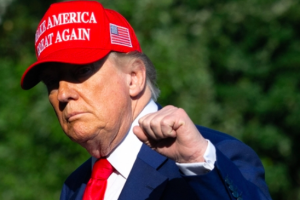Think Change Forum, an independent think-tank dedicated to generating new ideas and finding answers and solutions for the now disrupted global economic order, on Thursday organised a virtual roundtable on the crucial and imperative issue of the “Role of Retail Sector in Rebooting the Indian Economy in the Post Pandemic World”.
The retail sector in India accounts for almost 10 per cent of the nation’s GDP and is among the top three employment generators, providing livelihoods to about eight percent of the country’s workforce.
It features all possible formats — from the most traditional to the most innovative. Despite outstanding innovations, the Indian retail sector remains a hotbed of conflict among its various constituents.
It is the view of Think Change Forum that the retail sector can play a significant role in revitalizing the Indian economy post the pandemic provided we can create an environment where all participants can co-exist and work in harmony with each other.
The roundtable saw participation from a high-powered panel of eminent experts and industry specialists.
These included Dr. Sanjaya Baru, Journalist, Author, Policy Analyst, Political Commentator and Advisor – Think Change Forum; G Padmanabhan, Former Executive Director of RBI; Harminder Sahni, Founder & MD, Wazir Advisors; and Devangshu Datta, Chief Executive, Third Eyesight & Managing Partner, PVC Partners. The panel discussion was moderated by the senior journalist Gaurav Choudhury, Founder and CEO, Earshot Media and Consulting Editor, Network 18.
For a rapid and harmonious growth of the Indian retail sector, without any conflicts, the panel underscored the need for a greenfield policy in retail, on the critical regulatory agility to promptly address issues and conflicts among players to prevent the high cost of delay, and the importance of providing teeth to regulators such as the Competition Commission of India (CCI).
The consensus was clearly on the fact that while the worst was behind us, but the best is still not there. To make the best of the opportunity, retail’s huge employment generation potential must be safeguarded, even at the cost of large players who may harm smaller traders and their employing potential. In this connection, while sectoral recovery is now progressing, the sceptre of conflict, epitomized by the Amazon-Future Group feud, threatens to scuttle everything.
According to Baru, “In the history of regulation in India, every regulator is in theory independent, in practice, not. No regulator today is independent. Like, the CCI has been made toothless. Look at its ability to punish people who are contravening competitive requirements. We live in an economy in which the powerful are able to set the rules.”
“The fact is that Amazon is facing issues about regulation and competition and monopolistic and oligopolistic behaviour across the world and not just in India. A healthy debate is required on their practices and a healthy discussion is required on the role of regulators,” he added
On the issue of addressing the loopholes in laws and the legal framework, Mr. G Padmanabhan, Former Executive Director of RBI, said: “The most important point is that the agility with which you ate able to respond is key. We must, as a regulator, be able to come out with our decision quite quickly rather than allowing the matter to drag.
“The issues have been sometimes allowed to be bigger than what they were because of the sheer passage of time. Everyone knew what Amazon was up to, still they were allowed. It is important that issues are nipped in the bud.”
Speaking on the policy vacuum, Harminder Sahni, Founder & MD, Wazir Advisors, reflected: “As for other sectors, the policies for the retail sector too have been incremental rather than greenfield. We try to add new points while retaining the old, rather than start from a clean slate. In India, policy loopholes have been left in which players like Amazon get to play on.
“Amazon is well within their rights to compete and well within their rights to dominate, but anything that they are trying to do by circumventing the law obviously is wrong which they should not be doing.”
Bringing his views forth on the issue of learning from other’s best practices, Devangshu Datta, Chief Executive, Third Eyesight & Managing Partner, PVC Partners, commented: “We must remember that China first allowed 26 per cent FDI to foreigners and that too in certain cities only and then gradually allowed it to increase. This way the local retailers got the runway to respond, and no foreign retailer grew bigger than the local players. Policy capture happens across the world and is not unique to India. We need to create a landscape where small businesses can survive and thrive and there is healthy competition.”
For the panellists, the economic recovery in the post-pandemic era was as much a social aspect as it was a monetary one. Most agreed that the rebound was present albeit unevenly. According to Baru: “I believe that the recovery is uneven and not all sectors have piked up equally. This is less of a ‘V’-shaped recovery than a ‘K’-shaped one. It is a fact that the bottom of the pyramid recovery is still happening and even the retail sector has perhaps been not seeing the kind of investment which could be reflective of the footfalls it is now witnessing.”
The retail sector lending was ramping up and this provided hope to the industry.
Padmanabhan said: “Lending to retail sector has either reached or exceeded pre-Covid level, as evident from the data being generated by the payment systems, which primarily rides on the retail sector.”
It was also stressed that the Indian retail industry still had a long way to go and that we had barely scratched the surface in terms of opportunity.
Elaborating on this, Sahni said: “Barely 29 per cent of the population of India has ever gone to the malls; there is a huge runway still available for organized retail.”
For Indian retail’s real importance to be realized, its depth and breadth should be appreciated wholly.
According to Datta: “Retail touches every aspect of our lives, be it food, living, working, or travelling. It is not therefore, a large versus small issue. A bulk of retail business in India is micro and we should always keep this in mind.”
Agreeing, Sahni said: “Retail has always been a technology business and rides on data. Thus, the fear of dominance by virtue of sheer size is a far-fetched one.”
In conclusion, the panel felt that we need clearer rules in India, which are simple and easy to understand, without leaving scope for different interpretations, so what cannot be done directly should not be allowed to be done indirectly.
Opening of the economy and FDI is a necessary imperative, as even defence sector now invites FDI. In this context, having more powerful regulators like Competition Commission of India who can act swiftly to resolve issues and punish the offenders would be key. At no cost, large players, because of their faulty contracts should be allowed to put at stake livelihoods of millions and in the process put the larger economic revival at stake.

























Add Comment